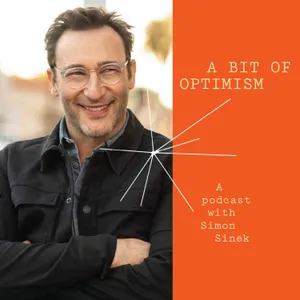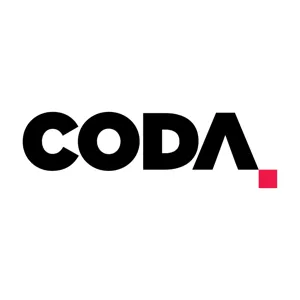Podcast Summary
The Power of Transparency and Community Engagement in Building Trust: Transparent platforms and engaged communities can help rebuild trust, even in a skeptical world. Acknowledging disagreements and inviting users to be part of the conversation increases trust.
Transparency and community engagement are key to building and maintaining trust, even in the face of potential errors or biases. This was highlighted in a conversation between the interviewer and Jimmy Wales, the founder of Wikipedia. Despite the Internet's declining trustworthiness, Wikipedia has managed to maintain public trust through its open editing policy and robust community monitoring. The platform's transparency, as evidenced by warnings about disputed articles or uncited sources, actually increases trust by acknowledging the existence of disagreements and inviting users to be part of the conversation. This approach can serve as a model for other institutions looking to rebuild trust in a skeptical world. Additionally, the episode was recorded live at Soho Farmhouse during London Tech Week, emphasizing the importance of trust in the digital age. So, whether you're looking to further your education with Purdue Global, save money on wireless service with Consumer Cellular, or explore California's diverse offerings, remember the power of transparency and community engagement in building trust.
Twitter vs Wikipedia: Different Approaches to User-Generated Content: Twitter requires more community management due to its openness, while Wikipedia's focus on improving articles reduces the need for constant monitoring. Journalism needs to return to factual reporting and abandon sensationalism to regain public trust, and subscription models can help restore trust in journalism.
Twitter and Wikipedia serve different purposes when it comes to user-generated content. Twitter, as a social media platform, is widely open for free speech, leading to a greater need for community management and dealing with offensive content. On the other hand, Wikipedia, with its focus on improving articles, has less need for constant monitoring as users are expected to keep discussions related to the topic at hand. Regarding the trustworthiness of media, it's essential for news organizations to return to a factual reporting approach and abandon sensationalism to regain public trust. The broken business models in journalism, which prioritize ad revenue and clicks, have contributed to the spread of inflammatory content. Subscription models, which prioritize quality over quantity, can help restore trust in journalism.
Media prioritizes sensationalism over unbiased news: Media outlets prioritize ad revenue and sensationalism, leading to inflammatory headlines and biased content. A shift towards subscriber revenue models could help, but social media's role in spreading sensational content remains a challenge.
The media landscape has shifted from a focus on providing unbiased news as a public service to prioritizing sensationalism and maximizing ad revenue. This trend, which began in the late 1970s, has only intensified with the rise of social media. As a result, consumers are often exposed to inflammatory headlines and biased content, which can lead to misunderstandings and a lack of informed understanding. The speaker argues that a shift towards subscriber revenue models could help mitigate this problem by allowing media outlets to take a longer-term view and focus on providing valuable, trustworthy journalism. However, this is just one piece of the puzzle, as social media platforms also play a significant role in prioritizing and spreading sensational content. Ultimately, it's important for consumers to be aware of these trends and to seek out reliable sources of information.
The divide in society caused by biased news and online discourse: Consumers need to be aware of their biases and the addictive nature of online content, and work towards promoting healthy community norms and standards for online discourse.
The current state of news consumption and online discourse is causing a significant divide in society, with people often seeking out information that aligns with their beliefs rather than striving for unbiased news. This trend is further exacerbated by the design of social media platforms, which encourage engagement through conflict and the lack of effective community controls. Wikipedia, on the other hand, offers a model of community-driven content creation and maintenance. However, the number of active contributors is relatively small compared to the vast number of users engaging with the platform. To get back to neutral, consumers need to be conscious of their biases and the addictive nature of online content, and work towards promoting healthy community norms and standards for online discourse.
Managing Social Media: Trusted Communities vs Democratic Systems: Trusted communities are more effective in managing social media platforms than democratic systems, as seen in successful businesses and WT Social's pilot project.
While a large number of people use social media, a much smaller number actually maintain and govern it. This challenge is compared to a democratic system, but a more effective solution is having representatives or trusted communities to manage the platforms. Meanwhile, successful businesses have inspiring origins, such as Chobani's discovery from junk mail or Drunk Elephant's controversial name. For innovation and creativity insights, tune into "How I Built This" podcast. AI is revolutionizing industries and demands significant processing power, making Oracle Cloud Infrastructure a cost-effective solution for businesses looking to compete. In the world of social media, there's a need for trust and community, as exemplified by WT Social, a pilot project aimed at democratizing social media management. Facebook's handling of disinformation accounts highlights the deeper issue of dealing with problematic users, comparing them to the annoying uncle or sweet grandma stereotypes. By shifting the power to trusted communities, social media platforms could potentially address these issues in a more effective and engaging way.
Social media business model vs Wikipedia's model: Social media's ad-driven model can prioritize controversial figures, while Wikipedia's donation-based model prioritizes trust and authenticity. People are more likely to donate to platforms that positively impact their lives.
The current social media business model, which relies heavily on engagement and advertising, can lead to a distorted online community where controversial figures with large followings can overshadow more positive and supportive individuals. This problem stems from the fact that these platforms prioritize content that generates more views and ad revenue, rather than trust and authenticity. Moreover, the trust issue is complex as it is a human emotion and developing an algorithm for it is challenging. However, Wikipedia's business model, which is based on donations and trust, provides an alternative. This model prioritizes trustworthy content, even if it generates fewer page views and ad revenue. The key to getting people to contribute financially to such platforms is to meaningfully impact their lives in a positive way. People are more likely to donate if they feel a strong connection to the platform and have benefited from it. The discussion also touched upon the importance of authenticity and trust in online communities and how the current advertising-based business model can hinder it. The move towards platforms that prioritize trust over engagement and ad revenue could lead to more authentic and enriching online experiences.
The influence of emotions on online content consumption: Recent research suggests focusing on trustworthiness instead of likes or dislikes could lead to higher quality content and more thoughtful discourse.
The way we engage with online content, particularly news and social media, is heavily influenced by emotional reactions such as fear, paranoia, and hope. However, recent research suggests that focusing on trustworthiness rather than likes or dislikes could lead to higher quality content and more thoughtful discourse. For instance, in a mock social network experiment, rating trustworthiness performed better than liking or disliking in terms of elevating quality content. Additionally, people of different political viewpoints can distinguish between higher and lower quality output. It's important to note that not all popular content is trustworthy or of high quality. Furthermore, individuals are capable of recognizing serious thinkers and grappling with their ideas, even if they disagree. A more interesting and engaging online experience could be achieved by exposing users to a variety of quality content that challenges their preconceptions, rather than just showing them what they want to see. Google News, for example, tends to show users news based on their interests, but surfing it anonymously can provide a more balanced view of the world. Ultimately, the goal should be to encourage thoughtful discourse and learning, rather than just engagement or agreement.
Challenges in finding unbiased news sources: In the digital age, it's hard to find unbiased news sources. People turn to Wikipedia, but there's a need for more ad-free, journalist-driven alternatives. Creating a successful platform involves paying journalists fairly, providing a satisfying user experience, and incentivizing quality content.
There's a growing need for unbiased and nuanced news sources in the age of information overload and filter bubbles. The internet, once a promising tool for accessing diverse and accurate information, has become a breeding ground for misinformation and echo chambers. People are turning to platforms like Wikipedia for a more balanced understanding of current events, but there's a lack of viable alternatives to traditional news sources. Jimmy Wales, the founder of Wikipedia, laments the absence of more individuals or organizations trying to challenge the status quo and offer competitive, ad-free, and journalist-driven news platforms. The challenge lies in creating a social network that provides a satisfying and enriching user experience, pays journalists fairly, and incentivizes them to produce quality content, rather than clickbait headlines. The ultimate goal is to foster a community that values understanding the world over being fed illusions.
Importance of covering local stories and building community connections: Focusing on local stories and community connections fosters strong audience relationships, but prioritizing clicks can lead to a harmful cycle of sensationalism. Serendipity and curiosity are valuable experiences lost in the digital age, but platforms like Reddit offer potential for discovery.
Embedding ourselves deeply in local communities and covering stories that may not get the most clicks but are important to the community is essential for building a strong connection with audiences, as explained by a media executive on the "How I Built This" podcast. However, focusing solely on what gets the most clicks can lead to a detrimental cycle of covering sensational stories, which can be harmful and unsustainable for journalists and the media industry as a whole. This is a lesson that can be applied beyond media, as we often prioritize instant gratification over long-term benefits and meaningful connections in various aspects of our lives. Serendipity and curiosity, which can lead to unexpected discoveries and learning, are valuable experiences that have been lost in the age of personalized online content. Platforms like Reddit, with its diverse range of topics and randomness, offer a glimpse of the potential for serendipitous discovery in the digital age.
Exploring the power of serendipitous discoveries: Embrace a curious attitude towards learning, intentionally explore or discover new topics through various means, and mitigate challenges like biased info and clickbait headlines for valuable insights and personal growth.
Serendipitous discovery and learning can occur both intentionally and unintentionally, through various means such as online exploration or recommendations from others. The internet, particularly social media, can be a rich source of serendipitous discoveries, but it also comes with challenges like biased information and clickbait headlines. A cynical optimist perspective suggests exploring ways to mitigate these challenges, such as writing neutral headlines and summaries for shared articles. Traditional media, like magazines, can also provide opportunities for serendipitous learning, especially those that cater to a wide audience and cover a range of topics. Ultimately, embracing a curious and open-minded attitude towards learning, whether through intentional exploration or unexpected discoveries, can lead to valuable insights and personal growth.
Empowering users to control their information consumption: The future of information consumption lies in tools that allow users to request unbiased, neutral information and filter out irrelevant or biased content, giving them more control and enabling informed decisions.
The future of information consumption lies in giving users more control over what they see. The speaker expresses optimism about the potential of tools that allow users to request unbiased or neutral information. He also mentions the issue of misleading clickbait headlines and the desire to filter out irrelevant or biased content. The conversation highlights the importance of personal accountability and the potential for technology to help users navigate the vast amount of information available online. It's a promising development that puts the power back in the hands of the consumer, allowing them to make informed decisions and engage with knowledge in a healthier way. The speaker also touches on the importance of having access to mental health support, emphasizing that everyone can benefit from it. Overall, the conversation underscores the need for tools and resources that empower individuals to engage with information in a meaningful and productive way.






